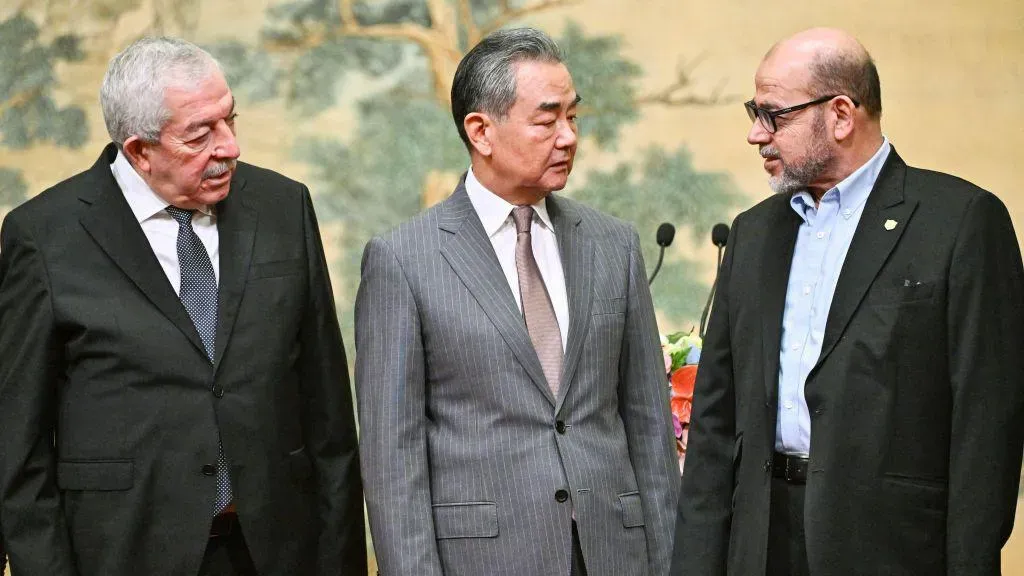In a bold diplomatic maneuver, China has recently brokered a significant agreement aimed at reconciling the long-standing schism between rival Palestinian factions, Hamas and Fatah. This move, which culminated in a historic declaration for an interim “national reconciliation government,” highlights China’s growing role in international diplomacy and its strategic interests in the Middle East. The agreement, reached after three days of intensive negotiations in Beijing, marks a pivotal moment in Palestinian politics and underscores China’s ambition to assert itself as a global peace broker. This detailed analysis delves into the intricacies of the reconciliation deal, its historical context, the current geopolitical landscape, and the broader implications for both the Palestinians and international relations.
Background: The Palestinian Divide
Historical Context
The schism between Hamas and Fatah dates back to 2007, following the 2006 Palestinian legislative elections. Hamas, having secured a decisive victory, established control over the Gaza Strip. This move triggered a violent confrontation with Fatah, the dominant party in the West Bank, leading to the latter’s expulsion from Gaza. The dissolution of the Hamas-led unity government by Palestinian President Mahmoud Abbas, who also leads Fatah, exacerbated the divide. Since then, the Palestinian Authority, controlled by Fatah, has governed only parts of the West Bank, while Hamas has maintained a stronghold in Gaza.
Recent Developments
The latest conflict, sparked by Hamas’s unprecedented attack on Israel on October 7, has further strained the already fragile situation. The assault resulted in the deaths of approximately 1,200 Israelis and the capture of 251 hostages. In retaliation, Israel has launched a severe offensive in Gaza, resulting in over 39,000 Palestinian casualties, according to Gaza’s Hamas-run health ministry.
The Reconciliation Deal
The Beijing Talks
In response to the escalating crisis, China has stepped in as a mediator, hosting talks between Hamas, Fatah, and twelve other Palestinian factions. The resulting declaration calls for the formation of an interim “national reconciliation government” to oversee the West Bank and Gaza following the end of hostilities. This agreement represents a renewed attempt to bridge the deep divide between the factions and restore unity.
Key Aspects of the Agreement
- Formation of a National Reconciliation Government: The primary objective of the declaration is to establish a unified government that will manage both Gaza and the West Bank. This interim government will be tasked with overseeing reconstruction efforts and preparing for future elections.
- Ceasefire and Withdrawal: The agreement emphasizes the need for a ceasefire, a complete withdrawal of Israeli forces from the Gaza Strip, and the provision of relief and reconstruction support.
- Challenges and Obstacles: Despite the optimistic tone of the declaration, significant obstacles remain. The lack of concrete details on implementation, combined with past failures to achieve lasting reconciliation, casts doubt on the agreement’s effectiveness. Additionally, Fatah has yet to make an official statement on the deal, and Israel has rejected the proposed role for Hamas or Fatah in governing Gaza.
China’s Role and Ambitions
Diplomatic Strategy
China’s intervention in the Israeli-Palestinian conflict is part of a broader strategy to enhance its global diplomatic influence. By brokering this reconciliation deal, China positions itself as a key player in Middle Eastern politics, challenging traditional Western dominance in the region. The move aligns with China’s long-standing support for Palestinian causes, dating back to Mao Zedong’s era.
Historical Support for Palestinians
China’s support for Palestinian “national liberation” movements has been a consistent aspect of its foreign policy. During the Cold War, Mao Zedong’s China provided military and financial support to various Palestinian factions, viewing them as part of a broader struggle against Western imperialism. This historical support has laid the groundwork for China’s current diplomatic efforts.
Recent Developments and Global Ambitions
China’s involvement in the Middle East has expanded in recent years. Notably, China brokered a landmark deal between Iran and Saudi Arabia in 2023, restoring diplomatic relations after a seven-year hiatus. This achievement reflects China’s growing ambition to play a more assertive role in global politics and present itself as a viable alternative to US leadership.
Reactions and Implications
Palestinian Reactions
The reaction from Palestinian representatives has been mixed. Hamas spokesman Hossam Badran hailed the agreement as a positive step toward national unity, while Fatah’s Mahmoud al-Aloul thanked China for its support. However, the practical implementation of the agreement remains uncertain, and past failures of similar deals cast a shadow over its potential success.
Israeli Response
Israel has vehemently rejected the reconciliation deal. Israeli Foreign Minister Israel Katz criticized Mahmoud Abbas for allegedly aligning with Hamas, accusing him of embracing terrorism. Israel’s stance underscores its ongoing hostility toward Hamas and its commitment to eliminating the group’s influence in Gaza.
International Perspective
China’s role as a mediator in the Israeli-Palestinian conflict is part of its broader diplomatic strategy to challenge Western hegemony. By promoting a peace plan and advocating for Palestinian unity, China seeks to enhance its global stature and influence. This approach reflects China’s ambition to reshape international relations and position itself as a key player in global diplomacy.
Conclusion
China’s initiative to reconcile Hamas and Fatah represents a significant diplomatic effort with far-reaching implications for the Middle East and international relations. While the agreement offers a glimmer of hope for Palestinian unity, its success depends on overcoming entrenched obstacles and garnering broad support from all parties involved. As China continues to assert its role on the global stage, its involvement in Middle Eastern affairs will likely shape the region’s political landscape and influence future diplomatic efforts.


